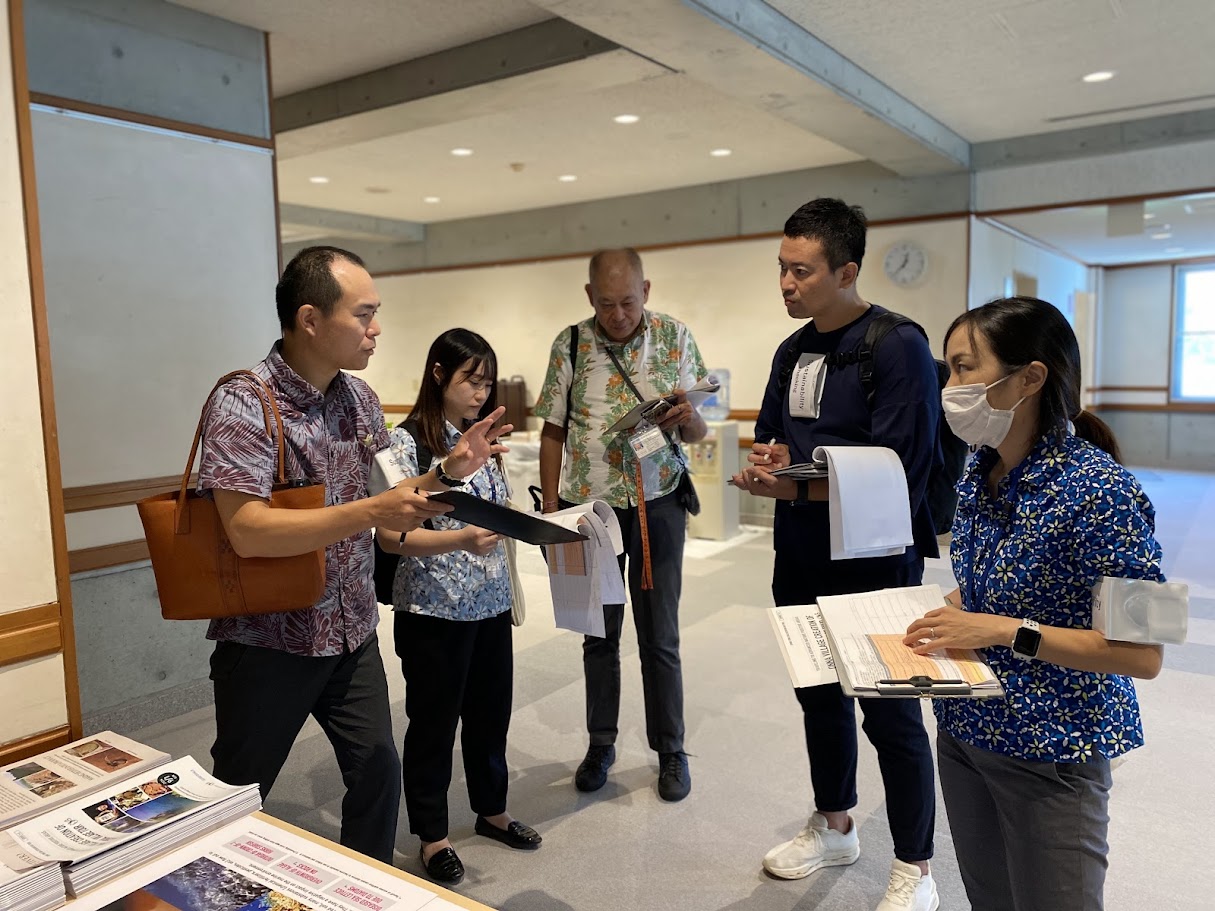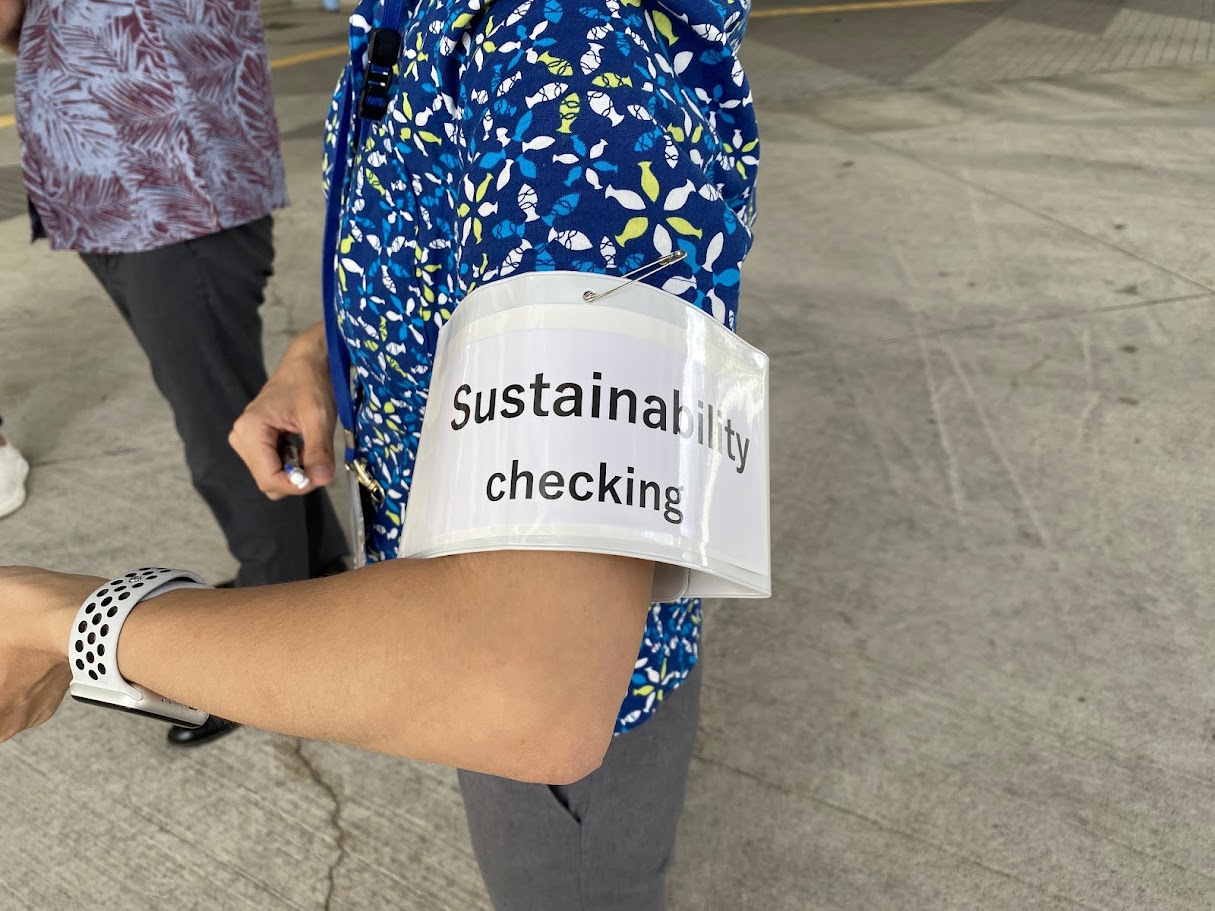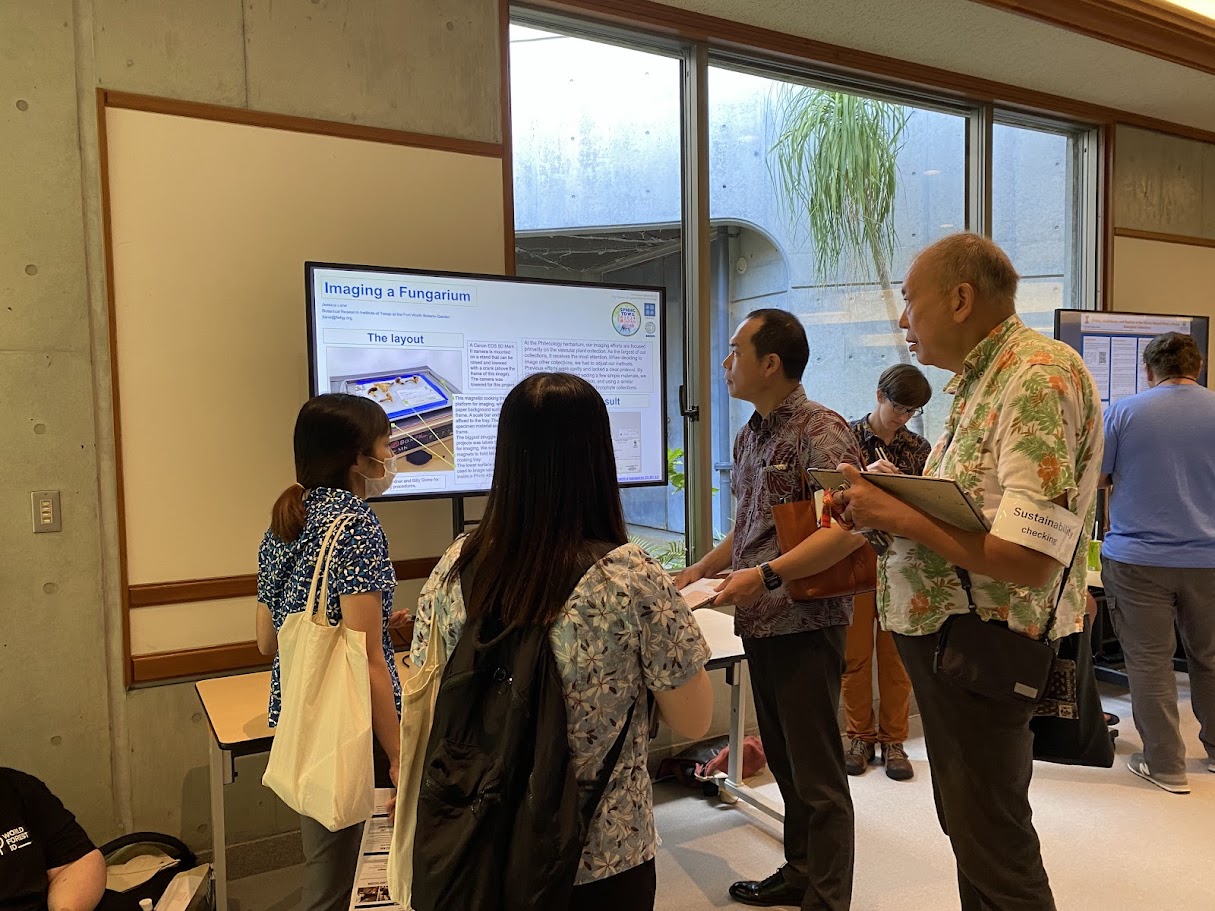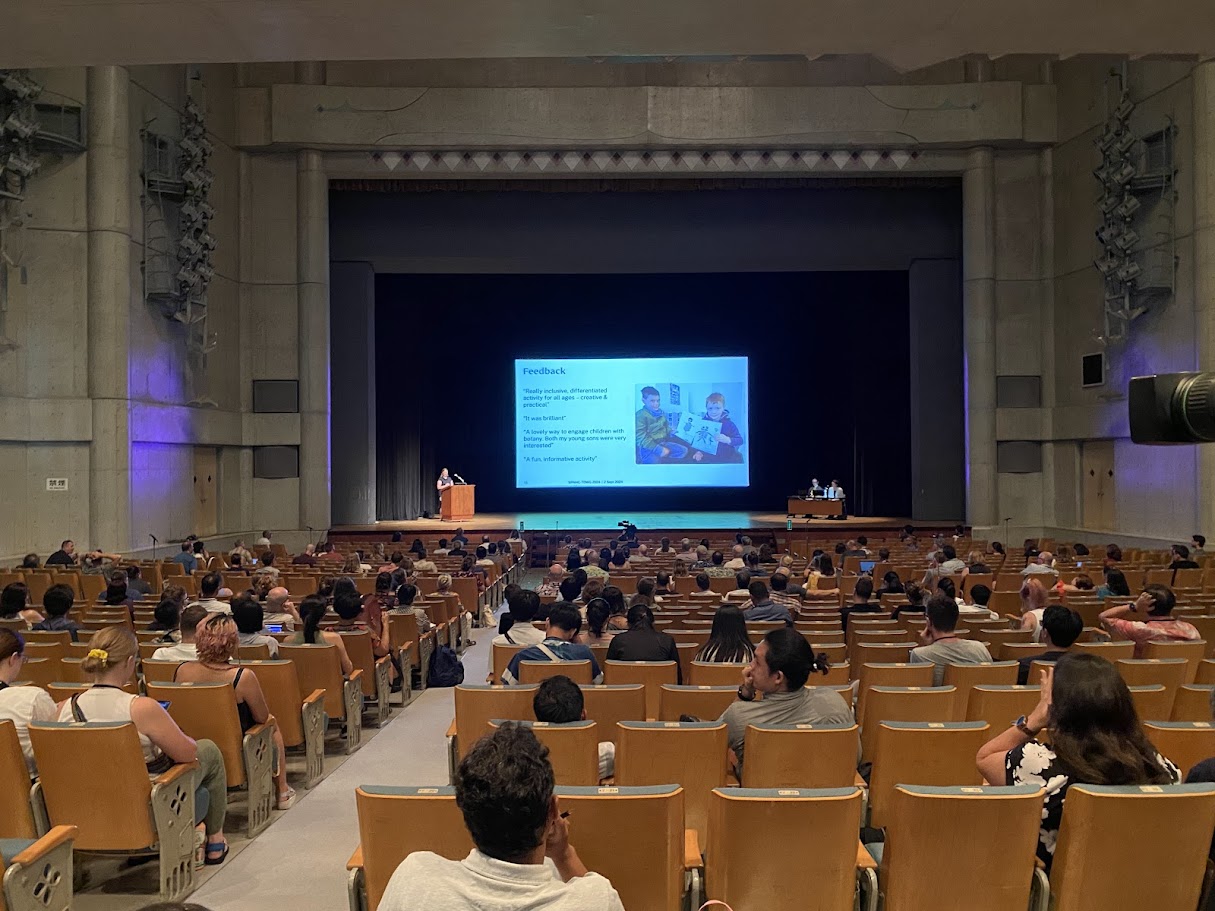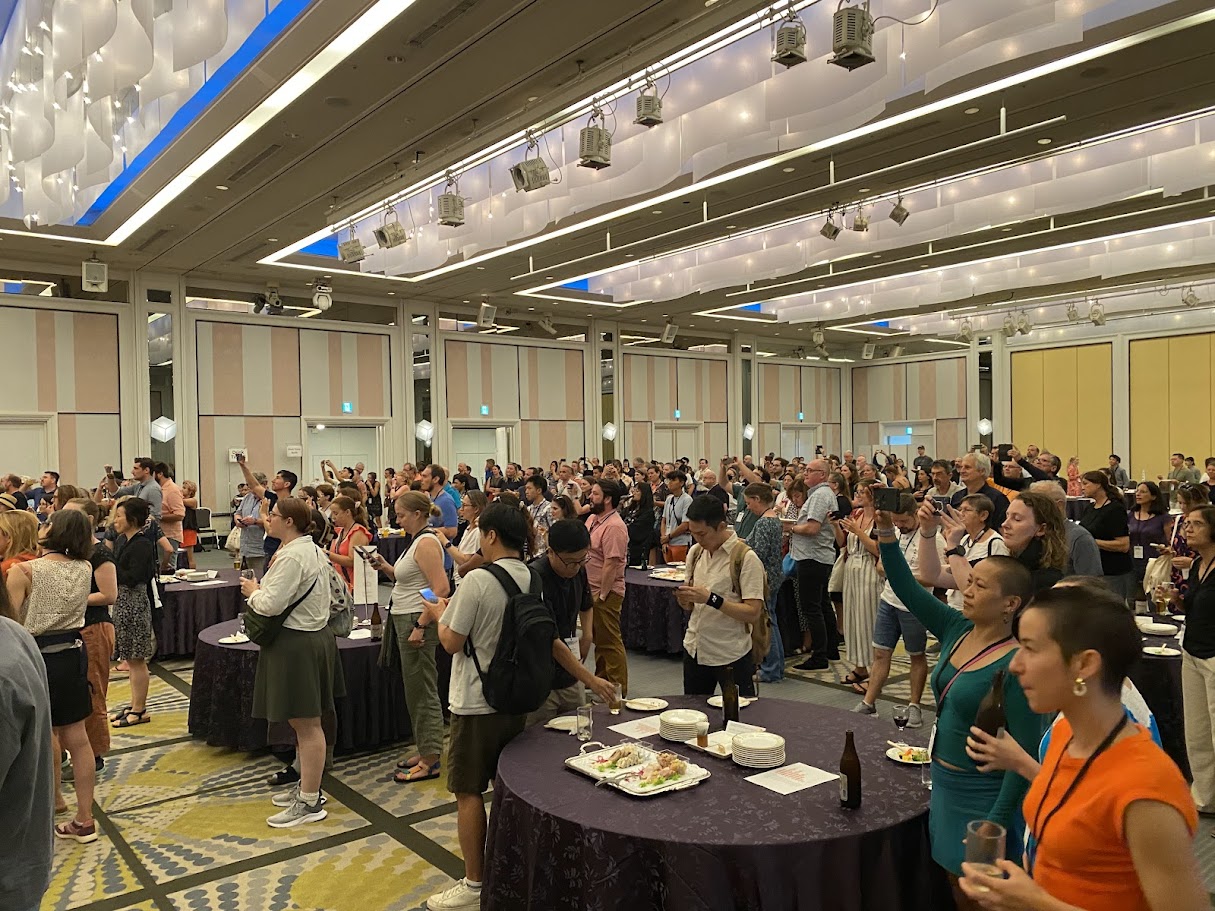Why Okinawa?
SPNHC-TDWG 2024
SPNHC-TDWG 2024
MICE event using initiatives based on the Okinawa MICE Sustainability Guidelines
ABOUT
A joint convention of the Society for the Preservation of Natural History Collections (SPNHC) and Biodiversity Information Standards (TDWG) was held at the Okinawa Convention Center from September 2 to September 6, 2024. This marked the first joint conference to be held in Asia.
Under the theme “Enhancing Local Capacity, Elevating Global Standards,” the conference aimed to advance global biodiversity data standards to the next level. It provided a rare opportunity to engage with the science of conserving natural history specimens—a field less accessible in Japan—and to learn from the efforts and expertise of other countries.
ABOUT SPNHC-TDWG 2024Initiatives using the Okinawa MICE Sustainability Guidelines
The event was committed to reducing the environmental impact of holding the MICE event and encouraging the host organizations and attendees to adopt perspectives that protect the rich natural environment of Okinawa. While fostering respect for the unique history and culture of Okinawa and promoting understanding and mutual exchange in the host region, the Professional Congress Organizer (PCO) operated the MICE event using initiatives based on the Okinawa MICE Sustainability Guidelines.
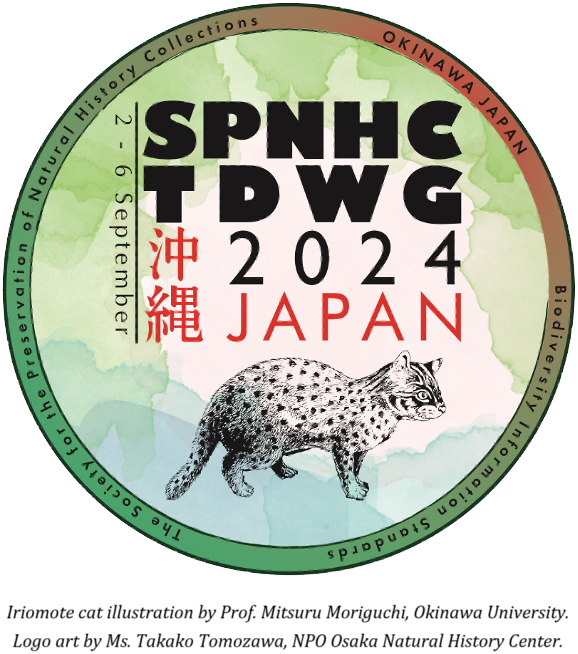
GUIDELINE
About the Sustainability Guidelines
OKINAWA MICE
SUSTAINABILITY GUIDELINES
The guidelines include examples of the MICE events held in Okinawa, as well as domestically and internationally, and self-check sheets that assist each entity in evaluating their sustainability efforts. The index, which classifies 65 sustainability efforts by participating entity and item difficulty, serves as a toolbox for both host and concerned businesses to support sustainability initiatives. By using the guidelines, the professional congress organizer (PCO) can provide assistance to achieve a successful event operation with high added value.
more (in JP language)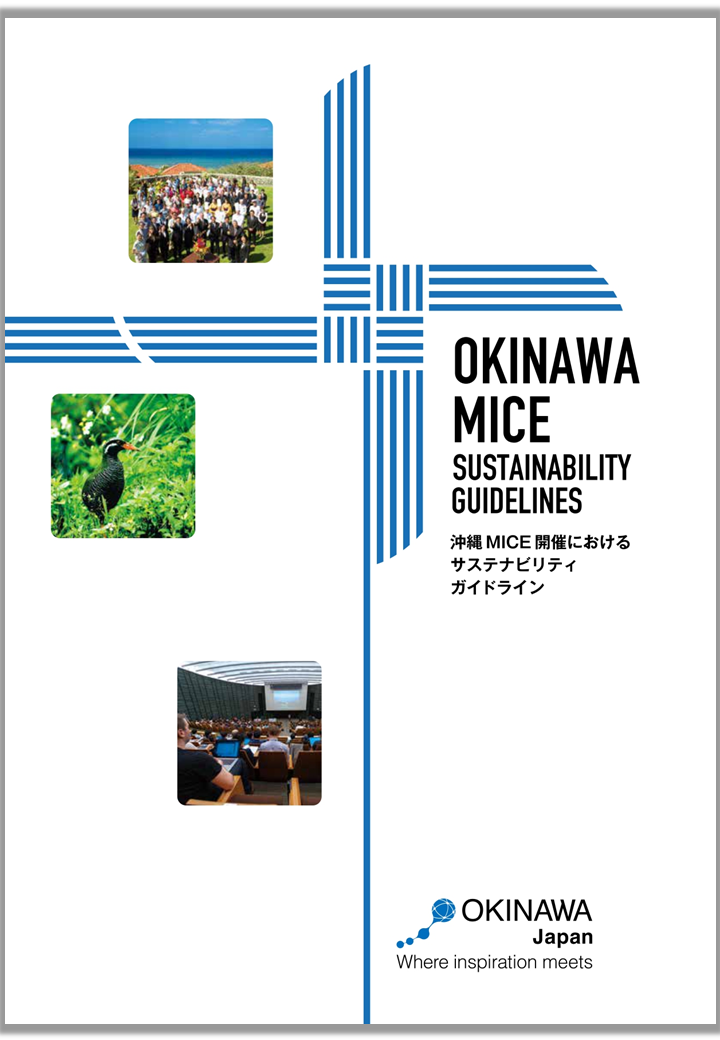
Goal of MICE event using initiatives based on the Sustainability Guidelines
01PARTNERSHIP

The establishment of a management system for sustainable initiatives
02MICE CONFERENCE

Creating a system that contributes a sustainable society by organizing MICE events.
03WORLD

From Okinawa to the world: Evolving into the premier MICE destination
Utilization Procedure for Sustainability Guidelines
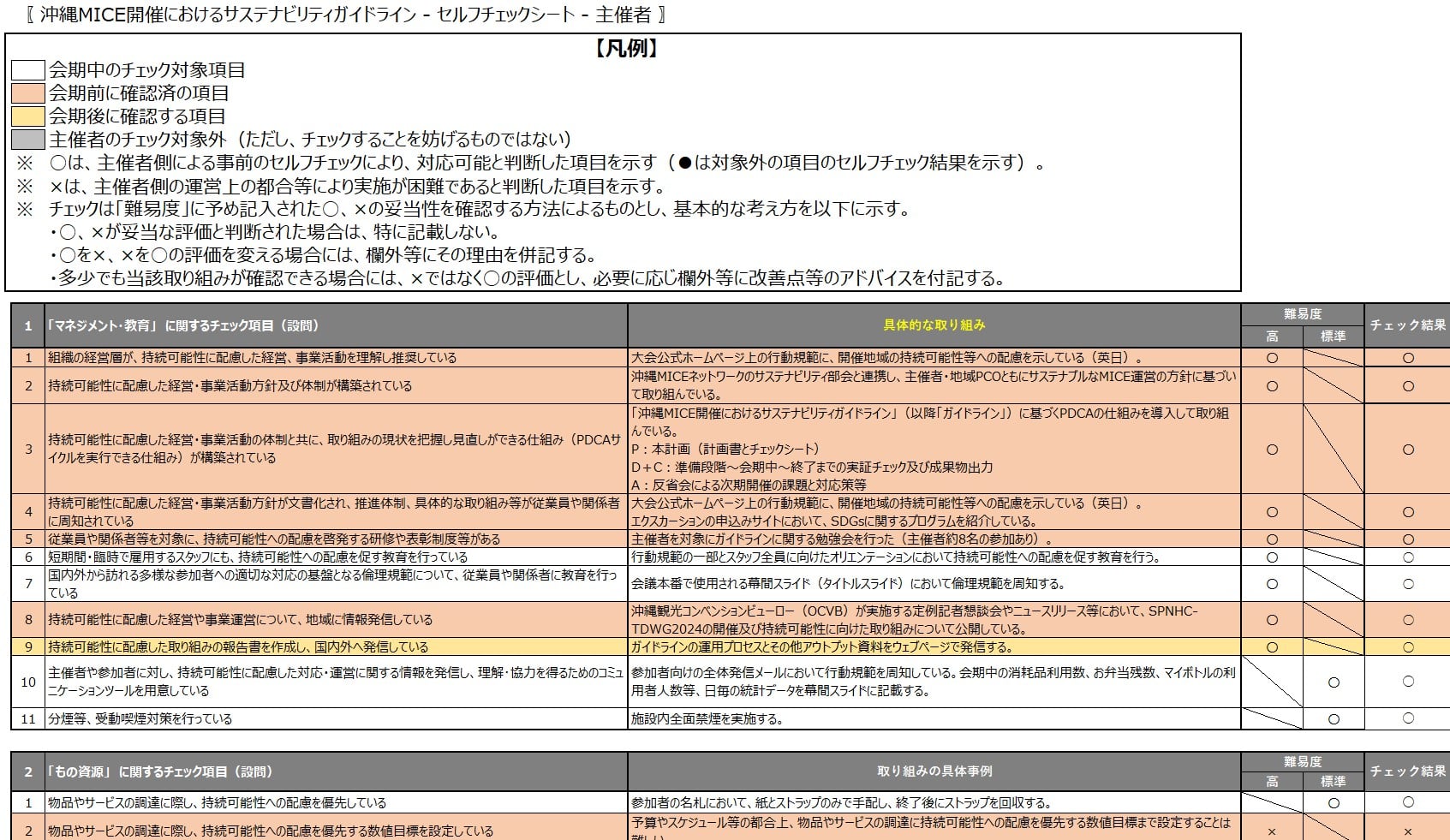 STEP
STEP01
Sharing Information and Awareness about the Sustainability Guidelines
The organizers and operational management, with the support of the Sustainability Committee, conducted study sessions on the background and objectives of the guidelines, as well as the contents of the self-check sheet for organizers. These efforts aimed to foster a shared awareness of sustainable event management.
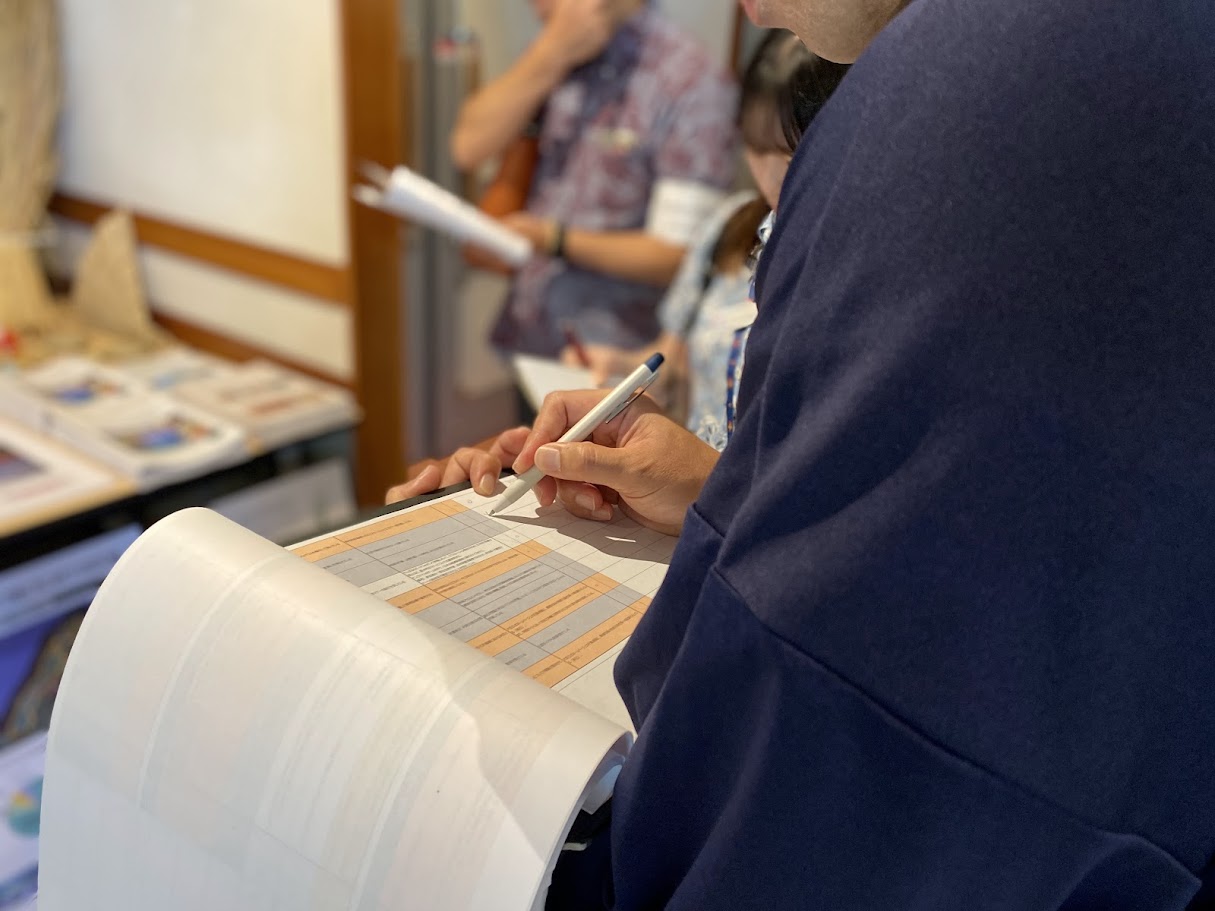 STEP
STEP02
Replace “specific examples of initiatives” with “specific initiatives” and conduct a self-check.
The organizers and operational management replaced the “specific examples of initiatives” listed on the right side of the self-check sheet’s “check items (questions)” with “specific initiatives” feasible for implementation during this event and conducted a self-check. The check items were color-coded into “items to be checked during the event,” “items confirmed before the event,” “items to be confirmed after the event,” and “items not applicable.” Additionally, the rationale behind the ○× indicators for feasibility was organized, enabling an efficient self-check process. The improved sheets are available from the link here
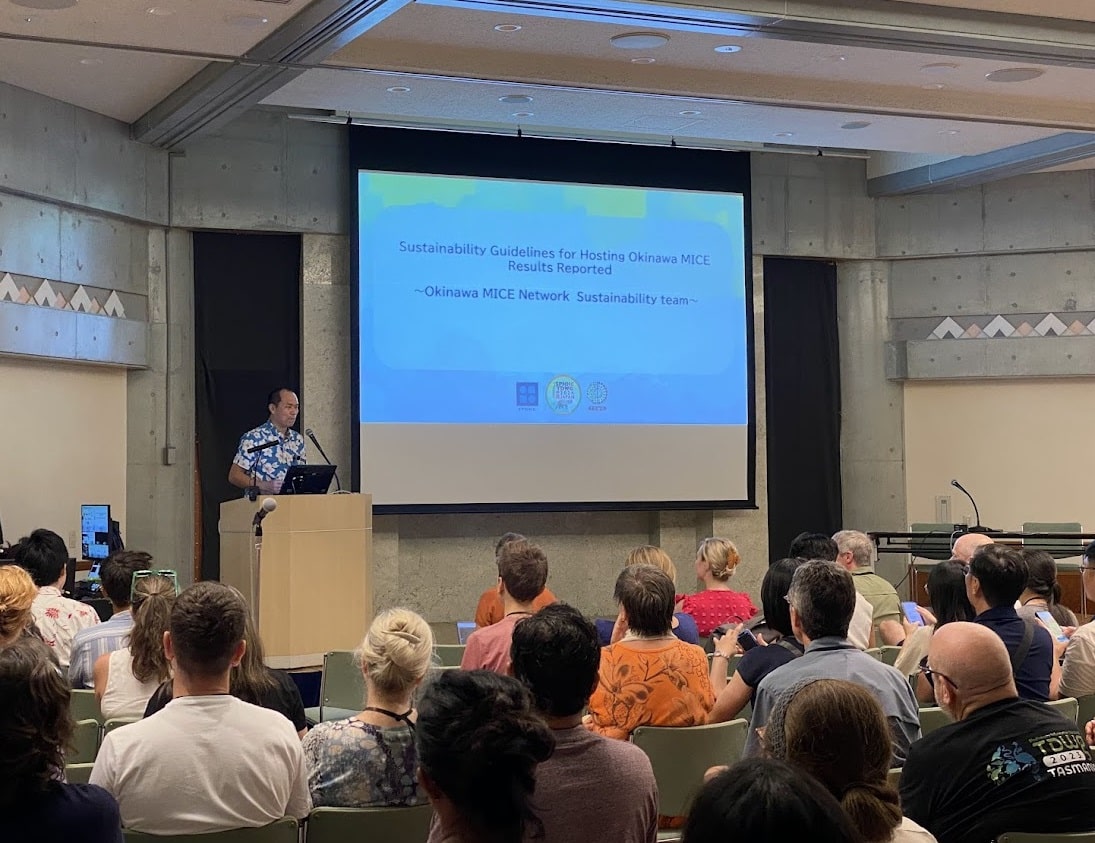 STEP
STEP03
Review and Feedback
by the Sustainability Committees
The Sustainability Committee confirmed the validity of the self-check conducted by the organizers and operational management.Furthermore, for further development and improvement, the confirmation results were directly communicated and shared with the organizers, operational management, and participants from around the world during the closing ceremony of the event.
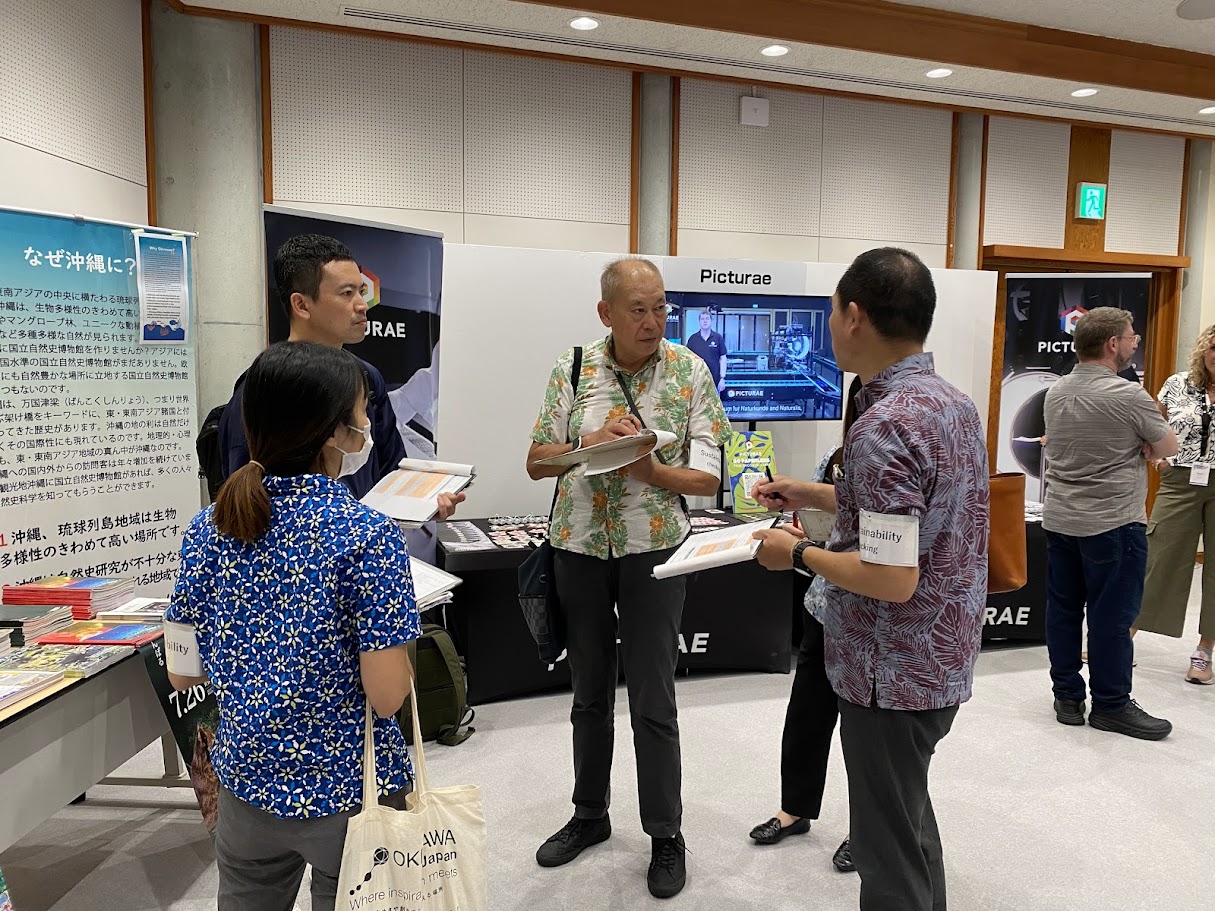
The role of the Sustainability Committee in this Conference Advice on how to utilize the self-check sheet
The Sustainability Committee of the Okinawa MICE Network provided advice during pre-event study sessions and on replacing the “specific examples of initiatives” listed on the right side of the self-check sheet’s “check items (questions)” with “specific initiatives” feasible for implementation during the event. Additionally, the committee verified the validity of the self-check results conducted by the organizers and operational management.
SUSTAINABILITY
In the context of international events held in Japan, where there are few cases of consistently applying sustainability guidelines from planning to follow-up, this event has become a valuable reference for sustainable MICE operations in Okinawa.
- Event
- SPNHC-TDWG 2024
- Implementation Structure
-
Host Organizations :
SPNHC-TDWG Joint Conference 2024 Organizing and Steering Committees
Professional Congress Organizer (PCO) :
Okinawa Congres Inc.
Supervision and Advice on Guidelines Operation :
Okinawa MICE Network Sustainability Subcommittee
(served by OCVB as the secretariat) - Initiative Items
-
- 1. Management and education
- 2. Material resources
- 3. Energy and water resources
- 4. Contribution to local communities
- 5. Diversity
- 6. Nature and culture
- Initiative Metric
- CheckSheets_SPNHC-TDWG.xlsx
Topics
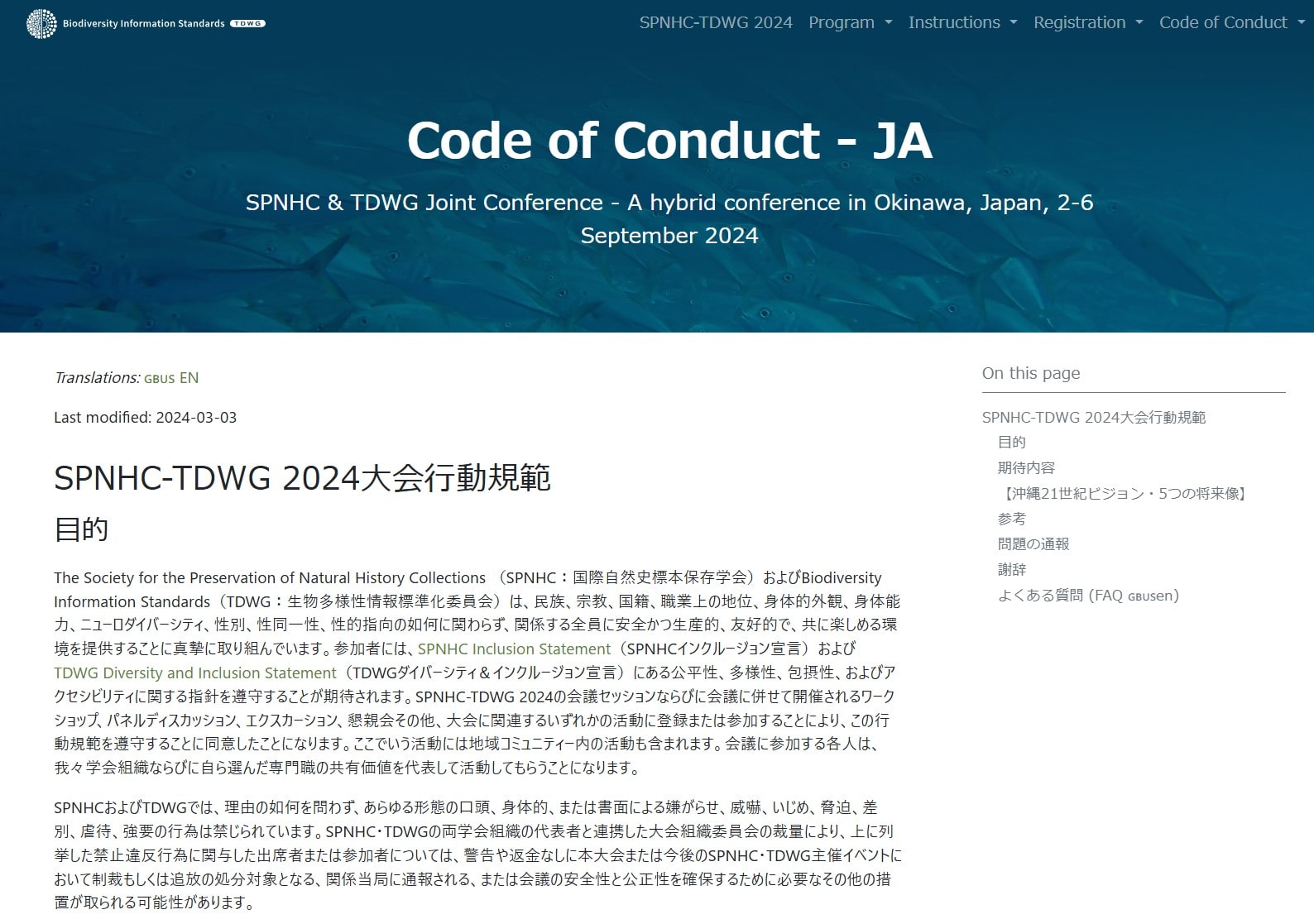 TOPIC
TOPIC01
Specification and Communication of Considerations for the Event Code of Conduct
A code of conduct was published on the official website of the convention, demonstrating consideration of the host region. And the organizers, operators, and participants were informed.
【Reference】
English) Code of ConductJapanese) Code of Conduct -JA
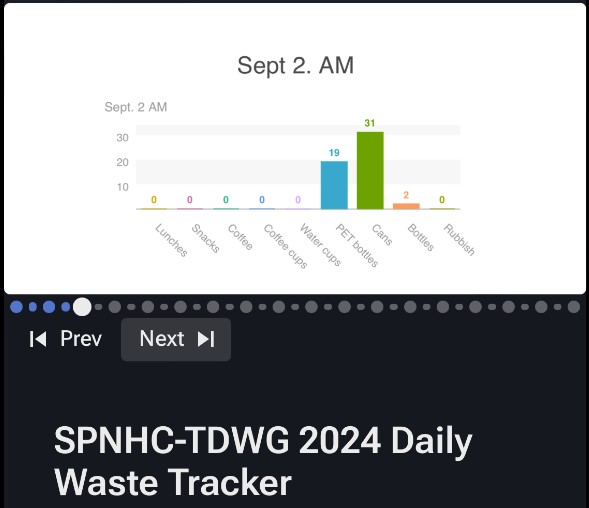 TOPIC
TOPIC02
Waste Reduction Policy Implementation
In addition to standard measures such as reducing paper handouts and minimizing the use of plastic bottles by providing water dispensers, creative efforts were made to raise awareness of waste reduction. These included the implementation of an app to visualize the types and total volume of waste generated, helping to track and improve waste management practices.
Link: Waste Tracker
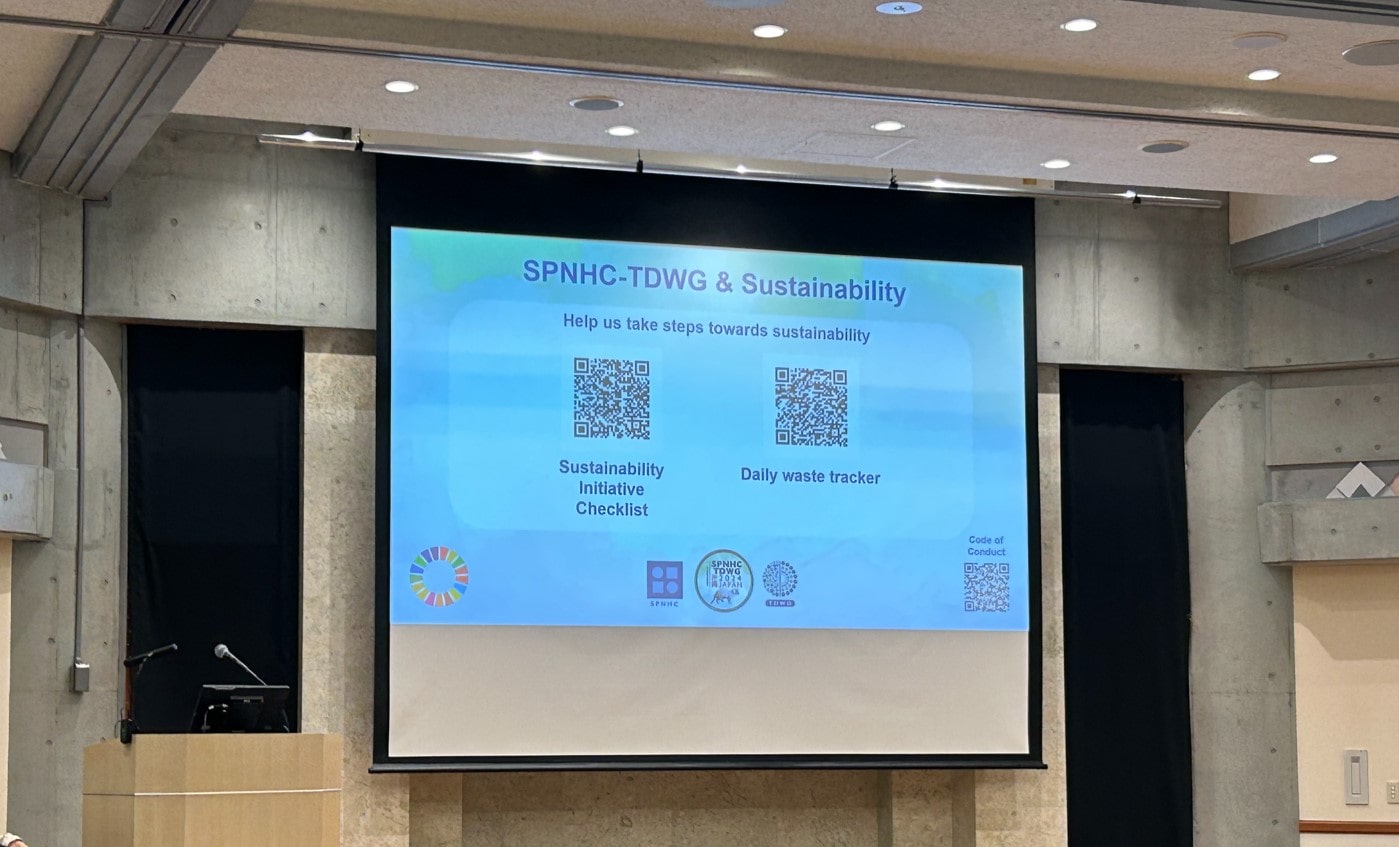 TOPIC
TOPIC03
Promotion of Sustainable Actions Using Intermission Slides
During the event, intermission slides (title slides) used in all conference rooms were utilized to periodically share information such as the sustainability guidelines checklist and details regarding waste volumes.
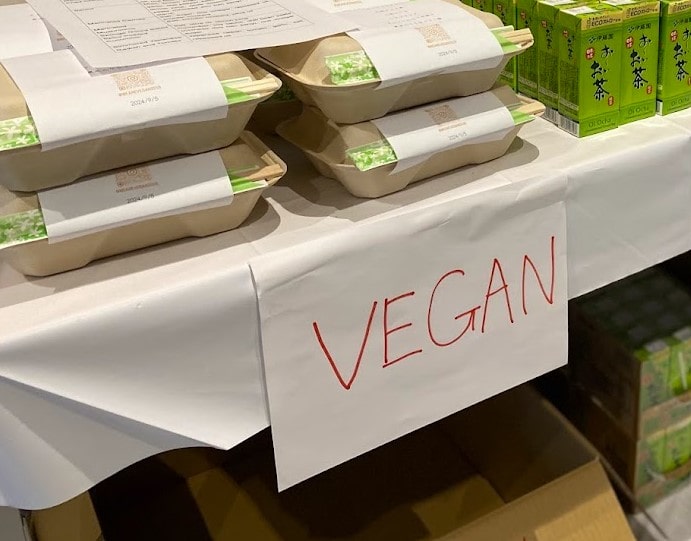 TOPIC
TOPIC04
Diversity Measures
Standard diversity measures were taken, such as displaying information on ingredients and cooking methods to accommodate dietary restrictions due to religion or allergies, providing assistance from foreign staff, and considering accessibility for all convention attendees.
On the other hand, the results of the survey by the host organizations indicate that the existing MICE facilities in Okinawa rarely provide a permanent prayer room for Muslims, and there are fewer businesses or facilities that can accommodate halal cuisine in Okinawa. It suggests the need to find solutions for the future.
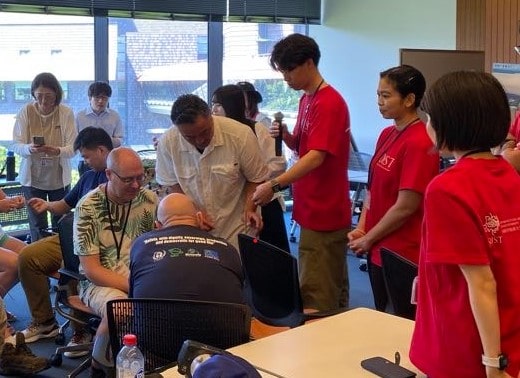 TOPIC
TOPIC05
Providing Opportunities to Experience the Unique Attractiveness of the Host Prefecture
Excursions and online contents were provided for conference participants to experience and learn about the unique attraction of Okinawa, and the initiatives for sustainable development goals and nature-positive. Through the interactive experiences between local people and conference participants, it provided wonderful opportunities to contribute to the conservation of local communities, local culture and the natural environment.
Summary of Check Results
Out of the 65 items in the Sustainability Guidelines, the event targeted 20 high-difficulty items and 26 standard-difficulty items. The number of compliant items reached 14 (70.0%) for “high difficulty” and 23 (88.5%) for “standard difficulty.” Through the collaboration of organizers, operational management, and participants, practical and effective operations were achieved.
On the other hand, challenges for the future have also become apparent, such as the difficulty in securing hotels and venues that actively implement sustainable practices due to constraints like budget and distance from the location.
| Difficulty | ||
| High | Standard | |
| Target items | 20 | 26 |
| Compliant items | 14 | 23 |
| Compliance rate | 70.0% | 88.5% |
Comments from the Organizers of the Event
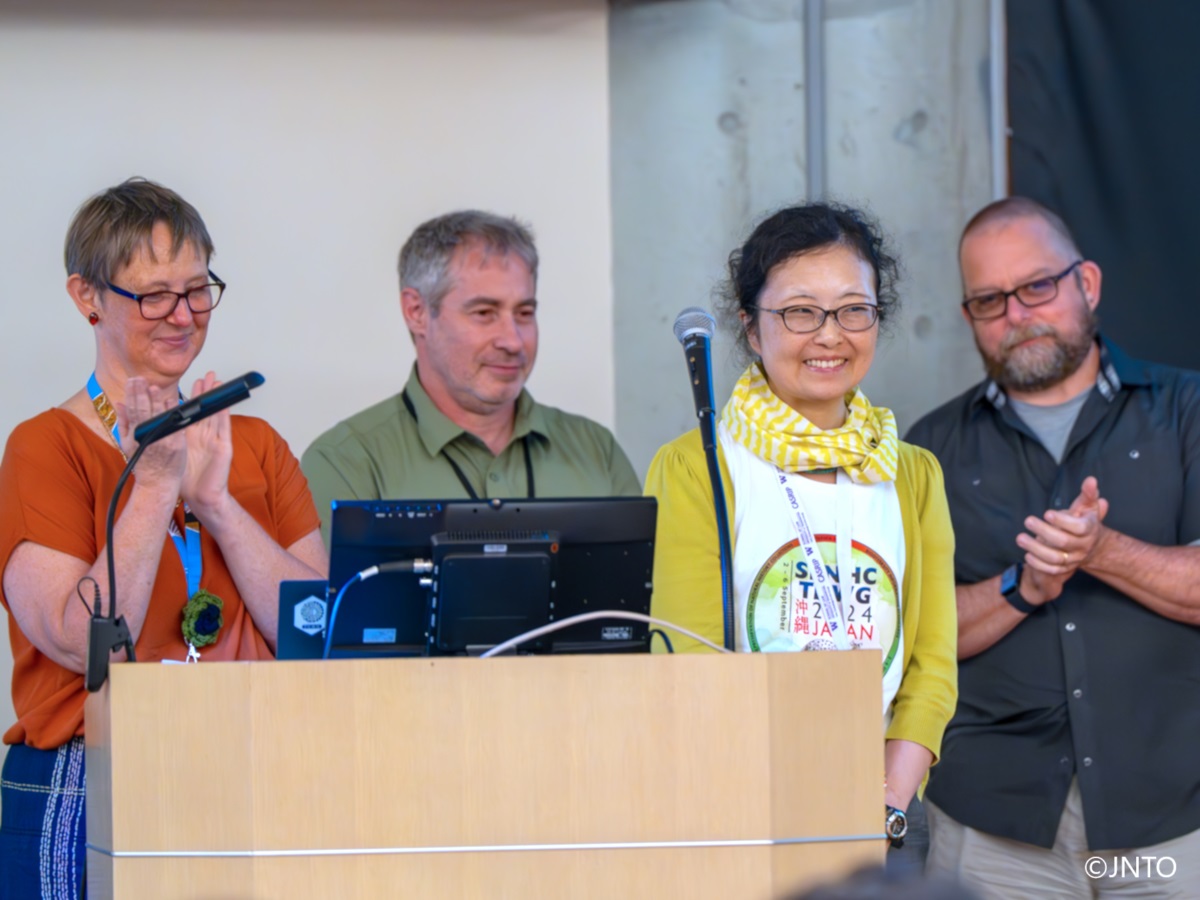
Host Organizations :
SPNHC-TDWG Joint Conference 2024
Organizing and
Steering CommitteesMariko Kageyama
Guided by our local partners and the MICE Sustainability Guidelines, along with their accompanying self-check sheets, we gained valuable insights into organizing a “green” event. Committed to hosting a sustainable MICE, we honored the local history, culture, and environment while finding creative, budget-conscious solutions. To amplify our efforts, we actively engaged with conference delegates, raising awareness of our initiatives and encouraging SDG-conscious actions both before and during the event. This collaborative approach led to a highly positive outcome. I wholeheartedly recommend the MICE Sustainability Guidelines to stakeholders looking to add meaningful value to future MICE venues.
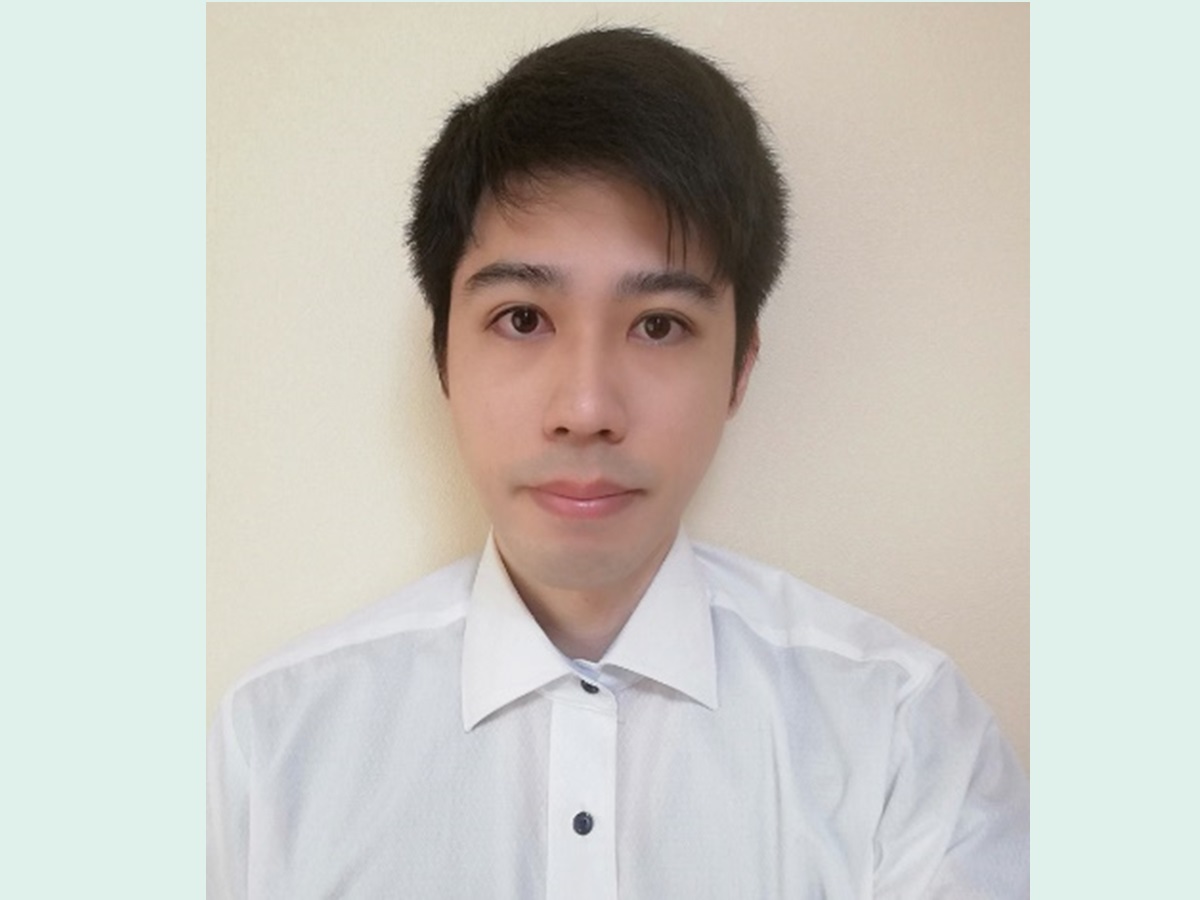
Professional Congress Organizer (PCO) :
Okinawa Congrès Inc.
MICE Department : Shea Yamaguchi
SPNHC-TDWG 2024 was a huge undertaking in the scope of sustainable MICE practices. The “Okinawa MICE Sustainability Guidelines” was the driving force behind our team’s initiatives, leading to efforts in establishing sustainable practices where possible, minimizing waste, and quantifying the meeting’s standards for future reference. Contributing to SDGs is a major undercurrent in today’s MICE industry, and I believe that utilizing tools like the Okinawa MICE Sustainability Guidelines” is essential to raising not only local but also global standards of sustainability.
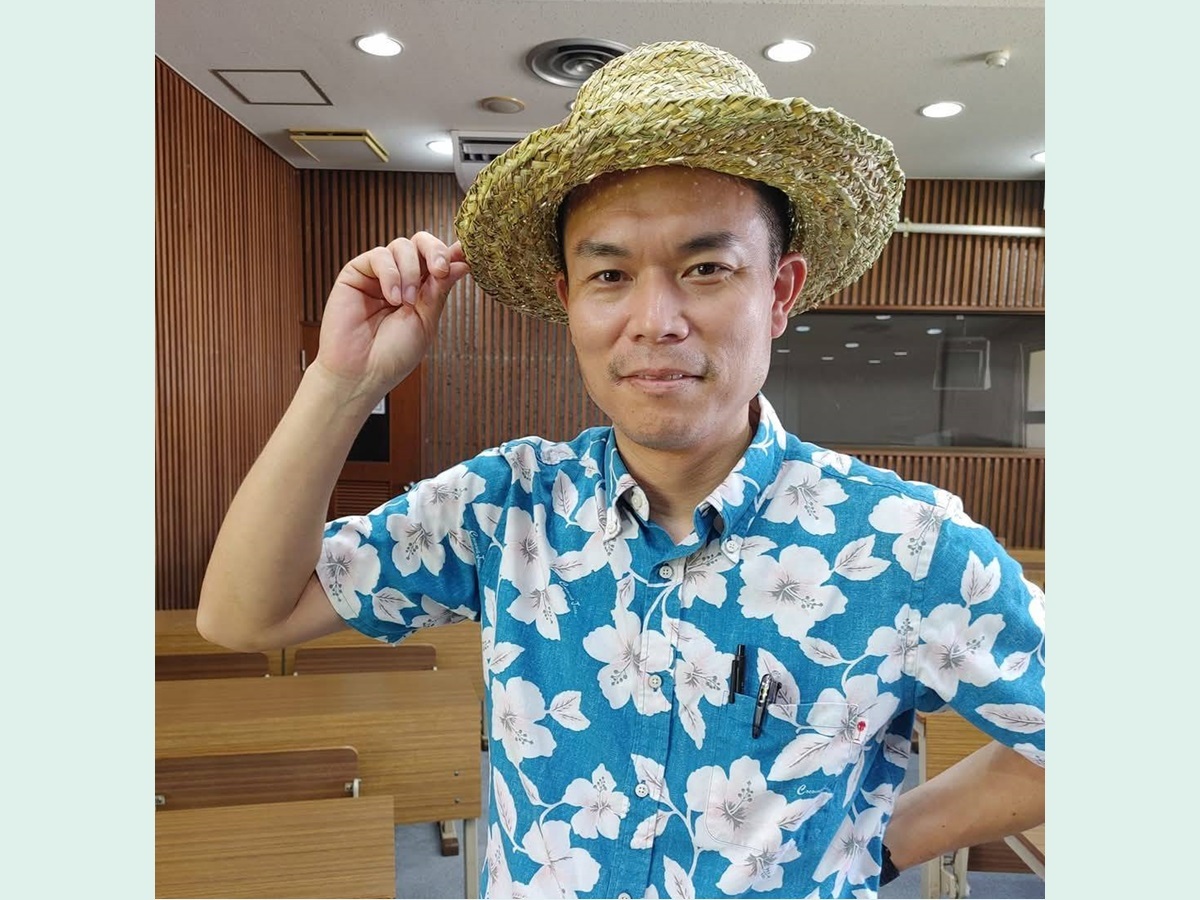
The Okinawa MICE Sustainability Committee Committee Chair : Shunpei Iwamura
The event was the first academic conference where the host organizations and the professional congress organizer constantly applied the “Okinawa Sustainability Guidelines” to the whole process of the event. Our committee supported the organizers from the perspective of smooth operation and identifying challenges and points for improvement in the application of the existing guidelines. As a result, the self-check sheets were improved and arranged to make them easier to use. I would appreciate if you look at them (The improved sheets are available from the link here) I would like to show my deep gratitude to the organizers and those who were involved in the project.
Related Links
CONTACT
Inquiry to the initiatives
The Okinawa MICE Network provides follow-up support through various expert teams to promote and host sustainable MICE events. Please contact us if you need any assistance or consultation regarding these initiatives.




